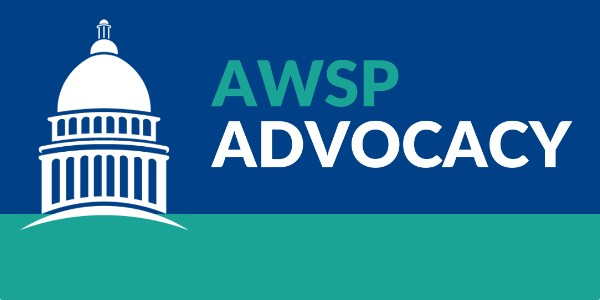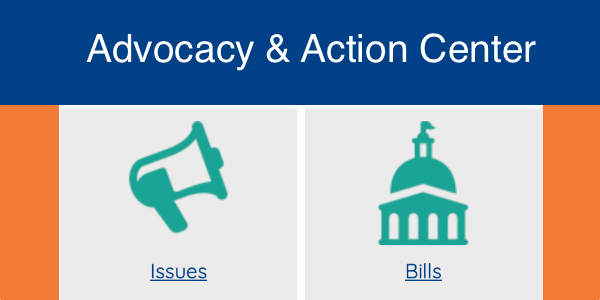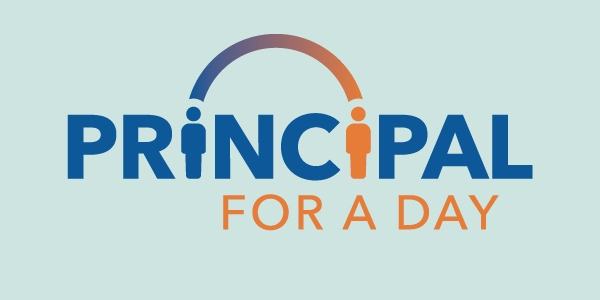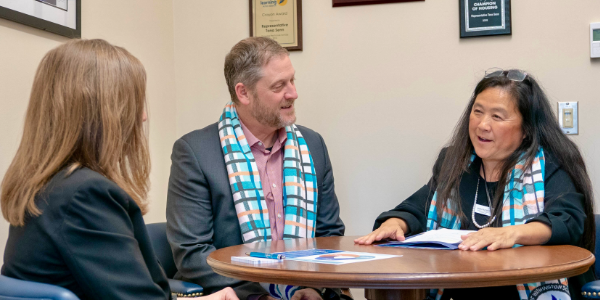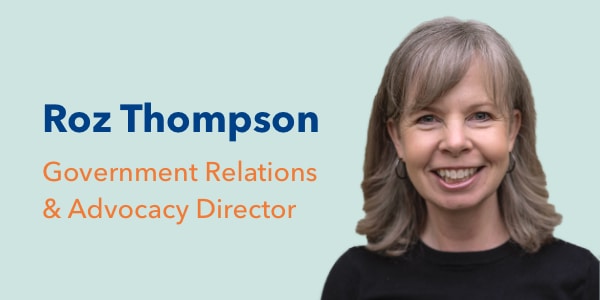Key deadlines have passed, and all action now moves to committee hearings as opposite house bills are discussed and acted upon. Overlaying all of these will be the upcoming proposed budgets whose hearings are scheduled for the upcoming week.
The status of bills continues to change constantly as committees often re-work bills. The summaries below are just as they were when this report was written.
Some bills have shown no movement since the last report, but they are related to the budget. Often called ‘trailer bills’ because the budget pulls them toward passage. In addition, bills can be ruled as ‘necessary to implement the budget’. They can then be revived under that justification which can be arbitrary at times.
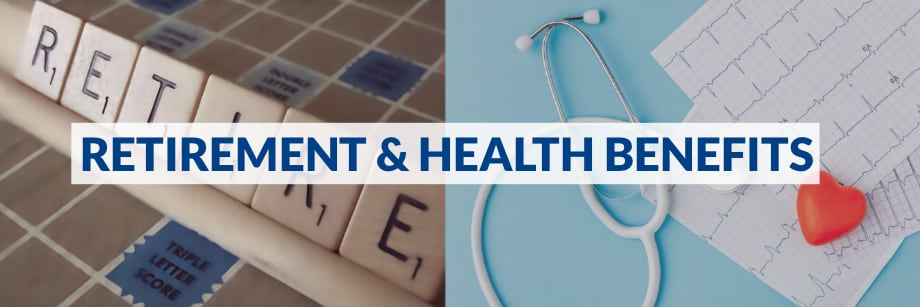
"A committee is a cu-de-sac down in which ideas are lured and then quietly strangled." Barnett Cocks
Key deadlines have passed, and all action now moves to committee hearings as opposite house bills are discussed and acted upon. Overlaying all of these will be the upcoming proposed budgets whose hearings are scheduled for the upcoming week.
The status of bills continues to change constantly as committees often re-work bills. The summaries below are just as they were when this report was written.
Some bills have shown no movement since the last report, but they are related to the budget. Often called ‘trailer bills’ because the budget pulls them toward passage. In addition, bills can be ruled as ‘necessary to implement the budget’. They can then be revived under that justification which can be arbitrary at times.
Retirement Related Proposals
SHB 1985: Providing a benefit increase to certain retirees of the public employees' retirement system plan 1 and the teachers' retirement system plan 1.
Comment: This bill passed House 97/0 and is awaiting scheduling before the Senate Ways and Means. This bill would provide an ad-hoc 3% increase in 2024 not to exceed $110/month for TRS1/PERS1 Plan retirees.
It has been scheduled for a public hearing Feb. 20th before WM.
HB 2481: Waiving health benefit premiums in the public employees' benefits board.
Comment: This bill would waive, as the title suggests, the health benefit premium of the deceased during the month of one’s death. The survivors, if covered by insurance, would still pay the balance of the premium.
It passed House 97/0 and is scheduled for a public hearing Feb. 20th before WM.
SB 6315: Concerning benefits available to retirees of the state's retirement systems.
Comment: This bill provides a one-time, 3 percent increase to the retirement benefits of retirees in the Public Employees' Retirement System and the Teachers' Retirement System Plan 1, up to $125 per month. • Directs the Public Employees' Benefits Board to eliminate savings banks and to use any savings in UMP-Classic Medicare. • Modifies uses of the retiree drug subsidy available to certain retired public employees to include both medical and prescription drug premiums.
Chair Robinson proposed this bill that addresses a number of retirement and health cost issues. It had a public hearing on Feb. 3rd before the Senate WM and is awaiting scheduling for executive session.
Other Areas of Potential Fiscal Impact (and often unfunded) to Districts
Below are selected titles and brief summaries of proposed bills that may have potential impact to the business operations of districts. The TWIO has a more extensive list and explanation.
SHB 1105: Requiring public agencies to provide notice for public comment that includes the last date by which such public comment must be submitted.
Comment: This bill requires public agency notices for public comment to include the last date by which public comment must be submitted. • • Establishes penalties for agencies failing to provide the notice.
It passed the House 98/0 and had a public hearing Jan 30th before Senate Government and Elections. No further action.
ESHB 1248: Concerning pupil transportation.
Comment: This bill provides that school districts may only enter into, renew, or extend pupil transportation services contracts with private nongovernmental entities that provide employee health and retirement benefits comparable to those received by school employees. • Directs the Office of the Superintendent of Public Instruction to reimburse school districts for increased costs due to providing these benefits and provides a formula for calculating the reimbursement.
It has passed the House 57/37/2 and is scheduled Feb. 15th for a public hearing before Senate Education. WASA has signed “Con” on the bill and submitted written comments.
E2SHB 1618: Concerning the statute of limitations for childhood sexual abuse.
Comment: It eliminates the statute of limitations for recovery of damages as a result of childhood sexual abuse for all intentional actions occurring after June 6, 2024.
The bill as amended passed the House 93/0/5. It had a public hearing before the Senate Committee on Law and Justice Jan. 30th and is scheduled for executive session on Feb. 15th.
SHB 1905: Including protected classes in the Washington Equal Pay and Opportunities Act.
Comment: This bill amends the Equal Pay and Opportunities Act to prohibit an employer from discriminating in compensation and career advancement opportunities against similarly employed employees based on the employee's age, sex, marital status, sexual orientation, race, creed, color, national origin, citizenship or immigration status, honorably discharged veteran or military status, or the presence of any sensory, mental, or physical disability or the use of a trained dog guide or service animal by a person with a disability.
This bill passed the House 63/34/1 and is scheduled for executive session Feb. 15th before Senate Labor and Commerce. Its companion, SSB 5894, remained in Senate Rules and did not advance. It is likely ‘dead’.
HB 1927: Reducing the number of days that a worker's temporary total disability must continue to receive industrial insurance compensation for the day of an injury and the three-day period following the injury.
Comment: It reduces the number of days – from 14 to 7 – that a temporary total disability must continue to receive workers' compensation time loss benefits for the first three days following the injury.
It passed the House 60/37/1 and executive session is scheduled Feb. 15th before Senate Labor and Commerce Committee.
HB 2044: An act relating to standardizing limitations on voter-approved property tax levies.
Comment: This bill removes the restriction on levy lid lift funds supplanting existing funds.
This bill passed the House 56/41/1 and is before Senate WM awaiting scheduling.
HB 2058: Increasing student access to free meals served at public schools.
Comment: TWIO has covered this previously. There is no fiscal note to date, although press reports that the state’s cost will be in excess of $80 million dollars. It is indeterminate what other local school district unfunded costs will be.
This bill was moved to Appropriations and is awaiting scheduling. This is an example of a bill that may be ‘necessary to implement the budget’ so may still be alive. Its purpose has support among members.
SHB 2127 - 2023-24
Concerning workers' compensation incentives to return to work.
Comment: This bill modifies certain return-to-work policies and reimbursement amounts under the workers' compensation program. • Increases the maximum amounts of reimbursements paid to employers participating in the Stay at Work Program and Preferred Worker Program by the Department of Labor and Industries (L&I). • Increases the maximum amount paid to qualifying employers for job modification costs by L&I. • Allows L&I to authorize payments for basic skills development for qualifying injured workers.
This bill passed the House 97/0. A public hearing is scheduled for Feb. 15th before Senate Labor and Commerce.
HB 2246: Concerning vacation leave accrual for state employees.
Comment: This bill increases the annual cap on the accrual of unused vacation leave for state employees from 240 hours to 280 hours.
This bill passed the House 97/0/1 and is before Senate Labor and Commerce.
SHB 2381: Increasing eligibility for economy and efficiency flexible school calendar waivers.
Comment: This bill authorizes the Superintendent of Public Instruction to grant waivers to reduce the minimum number of school days required in a school year to school districts with fewer than 1,000 students.
This bill passed the House 97/0/1 and is scheduled for a public hearing Feb. 15th before Senate Education.
SB 5059: Concerning prejudgment interest.
Comment: This bill modifies the accrual date for interest on tort judgments for tortious conduct of public agencies, individuals, and other entities to the date the cause of action accrues with some exceptions.
Interest on judgments for tortious conduct of public agencies, individuals, and other entities is modified to run from the date on which the cause of action accrues. This prejudgment interest applies only to arbitration awards and judgments entered following a trial of the matter. All other judgments founded on tortious conduct bear interest from the date of entry. Interest on judgments for nonsexual abuse tortious conduct that occurred while a plaintiff was a minor begins to run from the date the action is commenced or the date the minor turns 18 years old, whichever is earlier, at the same rates as currently provided in statute. Prejudgment interest does not begin to accrue on child sexual abuse claims until a notice of a claim is filed against a public agency defendant or a cause of action is filed against a nonpublic agency defendant. Future damages begin to accrue interest from the date of judgement.
It is scheduled for a public hearing Feb. 15th before Senate WM.
ESB 5344: Establishing a public-school revolving fund.
Comment: This bill directs the Office of the Superintendent of Public Instruction (OSPI) to administer a modernization loan program for school districts and state tribal education compact schools with significant building system deficiencies. • Establishes an advisory committee to design the loan application process, develop prioritization criteria, and evaluate grant recipients. • Directs OSPI to submit a list of modernization projects to the Governor and Legislature on an annual basis and directs the State Treasurer to administer loans approved by the Legislature. • Establishes loan criteria including a maximum 1 percent interest rate and a 20-year loan period.
The bill passed the Senate 49/0 and has been sent to the House for action.
E2SSB 5670: Permitting 10th grade students to participate in running start in online settings.
Comment: This bill permits rising 11th grade students to participate in Running Start courses during the summer academic term. • Requires that rising 11th grade Running Start students take no more than ten quarter credits per summer academic term or the semester equivalent. • Requires school districts to provide information about Running Start enrollment opportunities during the summer academic term.
This bill passed Senate 48/0 and is scheduled for a public hearing Feb. 15th in House Education. The fiscal note is not available, but this represents a cost to districts and an added administrative burden.
SB 5777: Concerning unemployment insurance benefits for striking or lockout workers.
Comment: Deletes a provision that disqualifies employees in a multi-employer bargaining unit from unemployment insurance benefits when the employees have been locked out following a strike against the employers in the bargaining unit.
This bill is on the Senate calendar awaiting action.
Its companion (ESHB 1893) after much debate passed the House 53/44/1. It is scheduled for a public hearing Feb. 15th before Senate Labor.
This bill allows individuals unemployed due to a labor strike to receive up to four weeks of unemployment insurance (UI) benefits following a specified disqualification period and the waiting week, provided that the labor strike is not prohibited by federal or state law or court order. • Removes the provision disqualifying an individual for UI benefits based on an employer-initiated lockout resulting from a strike against another employer in a multi-employer bargaining unit.
SB 5789: Concerning the sales and use tax for school construction assistance program capital projects.
Comment: This bill changes the School Construction Assistance Program formula so that the state will pay for the full sales and use tax levied on all costs chargeable to a school construction project.
This bill passed Senate 48/1 and is before House Capital awaiting action.
ESB 5790: An act relating to bleeding control equipment in schools.
Comment: This bill requires school districts, charter schools, and state-tribal education compact schools to maintain and make available certain bleeding control equipment and acquire and maintain at least one semiautomatic external defibrillator on each school campus beginning in the 2026-27 school year. • Specifies that schools must have a certain number of employees trained to use the bleeding control equipment. • Directs school districts to comply with existing requirements regarding semiautomatic external defibrillators.
This bill passed the Senate 47/0. It is scheduled for a public hearing on Feb. 15th before House Education.
ESSB 5793: Concerning paid sick leave.
Comment: This bill allows an employee or transportation network company driver to use paid sick leave when their child's school or place of care is closed after the declaration of an emergency. • Modifies the definition of family member for the purpose of using paid sick leave to include any individual who regularly resides in the employee's home or where the relationship creates an expectation the employee care for the person and that individual depends on the employee for care, except it does not include an individual who simply resides in the same home with no expectation the employee care for the individual. • • Provides that a child also includes a child's spouse. Requires the Department of Labor and Industries to develop materials and conduct outreach to inform individuals and businesses about the new provisions of the act.
It passed the Senate 28/21 and is scheduled for public hearing before House Labor and Workforce Standards on Feb. 14th, and further scheduled for executive session on Feb 16th. Its companion, (SHB 1991) has been moved to the floor calendar. The substitute expands the definition of "family member" in Washington's Paid Sick Leave Law, allowing employees to use paid sick leave to care for additional specified persons experiencing a mental or physical illness, injury, or health condition or needing medical diagnosis, treatment, or preventative care. • Allows an employee to use paid sick leave when the employee's child's school or place of care has been closed due to a public emergency.
SSB 5804: Concerning opioid overdose reversal medication in public schools.
Comment: This bill requires all school districts, charter schools, and state-tribal education compact schools, not just those with 2000 or more students, to obtain and maintain at least one set of opioid overdose reversal medication doses in each of the public schools and to adopt a related policy.
It passed the Senate 49/0 and is scheduled for a public hearing Feb. 15th before House Education.
ESB 5824: Concerning the dissolution of libraries and library districts.
Comment: This bill Increases the signature threshold for filing petitions to dissolve libraries from 100 taxpayers to 25 percent of eligible voters in the district. • Increases the signature threshold for filing petitions to dissolve library districts from 10 percent of voters residing outside of incorporated cities or towns to 25 percent of eligible voters in the district. • Expands voter eligibility to allow all qualified electors of a library district to participate in a vote on propositions for library district dissolution.
The bill passed the Senate 49/0 and is scheduled for a public hearing Feb. 16th before House State Government and Tribal Relations.
SSB 5873 - 2023-24
Providing adequate and predictable student transportation.
Comment: This bill, subject to budget appropriations, requires the Office of the Superintendent of Public Instruction (OSPI) to provide an analysis of school district transportation costs and allocations to the Legislature by June 1, 2027. • Requires OSPI to develop a transparent, predictable, and comprehensive student transportation funding model that addresses the diverse needs of students and the unique characteristics of school districts. • Provides additional funding in the amount of $400 per student for students that require special transportation due to the requirements of the McKinney Vento Homeless Assistance Act. • Provides that school districts may only enter into, renew, or extend pupil transportation services contracts with private nongovernmental entities that provide employee health and retirement benefits comparable to those received by school employees
This bill passed the Senate 29/19/1 and has been moved to House Appropriations.
SB 5883: Concerning the burden of proof for special education due process hearings.
Comment. This bill provides that a school district has the burden of proof when it is a party to a special education due process hearing. • Creates an exception to this burden of proof requirement in circumstances when a parent seeks reimbursement for a unilateral parental placement.
This bill passed the Senate 48/0. It is scheduled for a public hearing on Feb. 14th before House Education.
SB 5978: Authorizing the office of the superintendent of public instruction to act as a guarantor for a county when the county provides a loan to a school district.
Comment: This bill authorizes the Office of the Superintendent of Public Instruction (OSPI) to serve as guarantor for a county that has agreed to provide a loan to a school district that is on binding conditions. • Directs OSPI to adopt specific rules regarding this new authority, including a process for enhanced financial oversight of defaulting school districts. • Appropriates $10 million, or as much as is necessary, from the general fund to OSPI for the purpose of providing contingent guarantor funding and establishes requirements to access this funding.
It was scheduled for executive session on Feb. 5th before Senate WM, and no action was taken.
ESSB 6031: Modifying the student transportation allocation to accommodate multiple vehicle types for transporting students.
Comment: This bill provides that the pupil transportation funding formula may not be construed to mandate the type of vehicle used for pupil transportation and encourages districts to use the vehicle type that the district deems to be the safest and most cost-effective. • Requires district-owned cars to be included in the overall transportation allocation rather than being subject to a private reimbursement rate and requires additional district-owned ridership data to be considered. • Requires school districts to report the number of miles driven per vehicle type when reporting transportation data to the Office of the Superintendent of Public Instruction. • Expands the school bus purchase and reimbursement process to include passenger vans used in lieu of school buses. • • Requires that training and qualification rules that apply to school bus drivers must also apply to drivers transporting students in Washington State Patrol-inspected school vehicles other than school buses.
This bill passed the Senate 48/0 and has been sent to the House.
Fred Yancey
The Nexus Group LLC
Fred Yancey
The Nexus Group LLC



